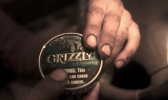This report aired on Sept. 12, 2013 on Prairie Public. It’s part four of a four-part series on injuries and deaths in North Dakota’s oil patch. Todd Melby was the reporter. Photo of Dustin Bergsing’s H2S monitor courtesy of OSHA.
Made possible by a grant from the Fund for Investigative Journalism.
As oil field jobs go, Dustin Bergsing seemed to have a pretty safe one. He wasn’t swinging pipes on a drilling rig or working near big, moving trucks. He was a well watcher, monitoring tank levels near Mandaree.
Bergsing worked alone, often at nights, for a Marathon Oil contractor. Once every two hours, he climbed a ladder, walked across a metal catwalk, opened hatches and peeked inside a series of giant brown storage tanks that were filled with a mix of crude oil, gasses and frac water. If one of the tanks was nearing capacity, he changed the flow so another tank would start filling. One of the few dangers Bergsing faced was possible exposure to hydrogen sulfide gas, also known as H2S gas. It’s an odorless, colorless gas that some wells naturally produce. It can kill a person. So Bergsing wore a yellow H2S monitor on his helmet to warn him of high levels of the deadly gas.
Still, something went wrong on the night of January 7, 2012. Just after midnight, Bergsing failed to respond to an alarm indicating a tank was almost full. So a co-worker came to check on him. The co-worker found Bergsing’s lifeless body on a catwalk.
“His death was reported to us as a fatality,” says Eric Brooks, the local director of OSHA — the Occupational Safety and Health Administration. “All right. I’ve got the case file here.” Brooks sent an investigator to determine how Bergsing died. The most likely cause of death seemed to be H2S poisoning. But it turns out Bergsing’s monitor was working and that wasn’t what killed the 21-year-old oil worker.
“The medical examiner’s identified professional opinion was that the hydrocarbons found in the victim’s blood did not appear to be work-related,” Brooks says.
After Dustin Bergsing died, his mother, Trista Juhnke, hired an attorney.
“Hi, my name is Fred Bremseth and I’m a personal injury trial lawyer,” says Fred Bremseth.
Bremseth agrees with one part of OSHA’s findings. “He had no other abnormal chemicals or drugs in his system. And the coroner’s report indicated that in fact the cause of death was exposure to hydrocarbons.”
But Bremseth believes those hydrocarbon vapors were definitely work-related. You see, hydrocarbons come from natural gas, a byproduct of crude oil. If that gas isn’t captured or flared properly, it can fill the air and suffocate a person. That’s what he learned when a surprise witness who came forward after Bremeth sued against the Houston-based company.
“He had been fired from Marathon Oil. And of course, we asked him why,” Bremseth says.
The man, whom we’ll call Mr. X, has a chemistry degree and works as an environmental engineer. He didn’t want us to use his real name for fear of losing his current job. Mr. X was hired by Marathon Oil in October 2011 — about three months before Bergsing died. Soon, Mr. X noticed that large amounts of hydrocarbon vapors were leaking from oil storage tanks. In the past, Marathon routinely used two flare stacks per tank. Now, according to Mr. X, the company was just using one. As a result, that natural gas flowed into storage tanks like the ones where Bergsing worked.
In a statement under oath, Mr. X described how he documented the problem with co-workers. He recorded the leaks with an infrared camera. He created a spreadsheet estimating the amount of the leaks. And …
“In fact they had gone and measured some of the gas levels,” Bremseth says. “And to his belief, those levels were not only toxic, but lethal.” So Mr. X began writing emails to supervisors. Here’s what he told Fred Bremseth in his sworn statement.
MR. X: “I asked why they had reduced the number of flares from two to one. I asked why the piping was undersized during the flowback. … They actually punished me because I wrote e-mails like that to them stating that there was compliance issues that they needed to address.”
BREMSETH: “What do you mean they punished you?”
MR. X: “They told me I couldn’t write any more e-mails. I was supposed to pick up a phone and not — not call on — or not write any more things like that, because they — lawyers could discover it.”
BREMSETH: “Really?”
MR. X: “That was their exact words.”
Still, Mr. X persisted. He continued to write emails, including one accusing his co-workers of “not living up to Marathon standards.” Says Bremseth, “Executives at Marathon Oil were concerned that what he was putting in writing could be discoverable by lawyers precisely in a situation like this.”
Voice of Todd Melby: “It sounds like they actually flew a lawyer from Houston to North Dakota to tell him how to write emails.”
Says Fred Bremseth: “That’s what the testimony was. They actually brought a corporate lawyer up from Texas and had put on a presentation for him trying to correct his ways o that he would write emails in the way they wanted him to do it.”
Mr. X’s 19-page statement also notes that a second oil field worker became dizzy on a Marathon-owned well in May 2012, four months after Bergsing died. Mr. X and two co-workers went out to the well, took measurements and concluded that “the oxygen content was below breathable. It had displaced the oxygen around the tanks. It was almost deadly.”
Says Fred Bremseth, “If you become overcome by the gasses, it’s too late.” Mr. X believes those circumstances were deadly for Dustin Bergsing. “Yep, that’s what got him,” Mr. X told Bremseth. In June 2012, less than one year after he started working at Marathon Oil, Mr. X was fired.
Marathon Oil executives refused to be interviewed about the case or Mr. X’s testimony. Instead, the company issued a statement. Marathon Oil says Mr. X was fired for “performance reasons” and that his statement to attorney Fred Bremseth was “grossly inaccurate and wholly without merit.” The company says Mr. X’s statement happened without its corporate lawyers in the room and therefore, it’s one-sided. I asked Bremseth about this last point.
“The court process certainly would allow Marathon Oil to take a comprehensive discovery deposition as part of the normal pre-trial procedures,” Bremseth says. “They could have done that if they wanted to.”
In its statement, Marathon Oil also says it “saddened by the loss of Dustin Bergsing” and called his death “tragic.”
Four months after Bergsing died and a second person became dizzy while working near oil storage tanks, Mr. X says Marathon finally took action when it began supplying its contractors and employees with air respirators. “Nobody should be going out to those well sites without self-contained breathing apparatus or supplied air respirators or not being there alone,” Bremseth says.
The company eventually reached an out-of-court settlement with Dustin Bergsing’s family for an undisclosed sum of money.
More stories from the series are here:
















